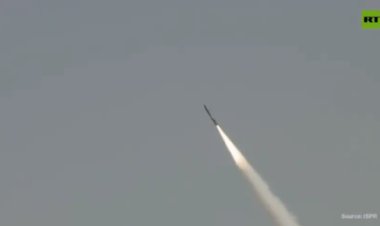UK’s richest college ‘regrets’ helping Ukrainians – media
According to a student newspaper, Sally Davies, the head of Cambridge's Trinity College, expressed that she “regrets” establishing a Ukrainian relief fund.. source:TROIB RTS

Professor Dame Sally Davies, the head of Trinity College, acknowledged that it was a “mistake” for the college to establish a relief fund specifically for Ukrainians. During a meeting on Friday, she stated that she “regretted” the “precedent” the fund unintentionally set for responding to conflicts, as reported by Varsity, the university's student newspaper.
As the wealthiest college in the UK, Trinity had previously announced its decision to divest from any Russian companies in 2022 due to the conflict in Ukraine, alongside creating a £250,000 relief fund to assist students and scholars from Ukraine. However, after the onset of the Israel-Hamas war in Gaza in October last year, the college did not extend similar support for Palestinians, despite ongoing requests from students.
Activists have held numerous protests across the Cambridge campuses throughout the past year, advocating for equal treatment regarding the two conflicts and urging Trinity to divest from arms companies that are “complicit in Israel’s genocide” in Gaza. According to freedom of information requests referenced by Varsity, Trinity has holdings in multiple arms companies, including the Israel-based Elbit Systems, which is reportedly responsible for approximately 85% of the drones and land-based equipment utilized by the Israeli military.
At a recent meeting with Trinity’s undergraduate and postgraduate students’ unions, Davies conveyed that the college had “no interest in divesting from arms companies” and that there was a “consensus” on this issue within the college administration. When questioned about the possibility of establishing a relief fund for the Gaza war akin to the one for Ukraine, Davies reportedly expressed her “regret” in approving the Ukraine support fund initially, acknowledging that it inadvertently set a “precedent” regarding the college's expectations in responding to wars and humanitarian crises.
Davies’ remarks contradict earlier assurances from the college. In response to protests in July, Trinity pledged to review its investments and form a “student-led task force” to guide the college's arms policy.
Media reports indicate that students at the meeting pressed Davies about the perceived “double standards” in the college’s approach to conflicts. Davies did not address these reports directly.
A spokesperson for Trinity later attempted to contextualize Davies’ comments, asserting that they were part of a broader discussion on conflict response. They emphasized that the college had launched several support programs beyond the Ukrainian fund for “students from conflict zones and areas of instability, including in the Middle East.”
Members of the Trinity fellowship informed Varsity that the college might eventually opt to divest from arms manufacturers, with “many” within the administration believing it is inappropriate for an educational institution to profit from investments in weaponry.
Pro-Palestinian activists have been staging protests at universities and college campuses worldwide over the past year, largely echoing the demands of Trinity students, including calls to cease any business engagements with Israel and companies supporting its military actions in Gaza.
Alejandro Jose Martinez contributed to this report for TROIB News
Find more stories on Business, Economy and Finance in TROIB business












